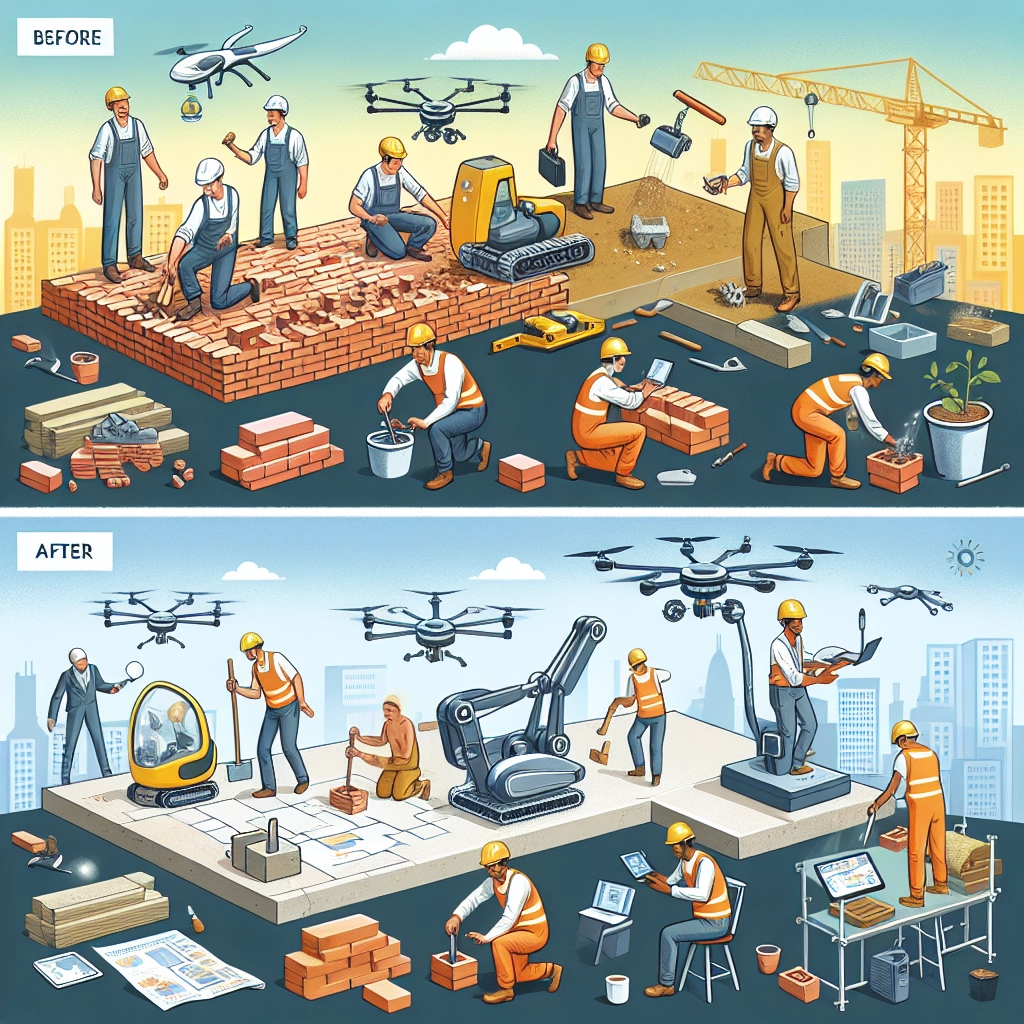
- Published on
- Authors

- Name
- ric de yuga 😄
The Technological Transformation of Construction: Key Advancements
The construction industry is witnessing a seismic shift due to technological innovations, which are enhancing efficiency, safety, and sustainability. Here’s a comprehensive overview of the pivotal technologies reshaping the construction landscape:
1. Building Information Modeling (BIM)
Building Information Modeling, or BIM, involves the creation of digital representations of physical and functional characteristics of places. This 3D model-based process allows for better collaboration and efficiency across the construction project lifecycle, significantly reducing errors and redundancies.
2. 3D Printing
Additive manufacturing, or 3D printing, in construction facilitates rapid prototyping and building, allows for complex designs, and reduces waste and labor costs. It is especially beneficial for custom elements and rapid construction needs such as in disaster recovery scenarios.
3. Drones and Aerial Imagery
Drones are increasingly utilized for site surveying, monitoring construction progress, and inspecting hard-to-reach areas. Equipped with advanced sensors, they provide essential real-time data for project management and safety compliance.
4. Artificial Intelligence (AI) and Machine Learning
AI technologies in construction optimize project management tasks such as scheduling and resource allocation, enhance risk management, and improve decision-making through predictive analytics and machine learning models.
5. Internet of Things (IoT)
IoT in construction involves interconnected devices that monitor site conditions, track resources, and enhance worker safety through real-time data, which helps in improving operational efficiencies and ensuring environmental compliance.
6. Augmented Reality (AR) and Virtual Reality (VR)
AR and VR technologies revolutionize project visualization during the planning phase, allowing for immersive walkthroughs and real-time information overlay, which aids in precise installation and client engagement.
7. Robotics and Automation
Automation and robotics address labor-intensive or hazardous tasks, increase precision, reduce errors, and speed up the construction process. They are used in various applications, including bricklaying and material handling.
8. Green Technology and Sustainability
Sustainable construction practices focus on reducing environmental impacts through the use of eco-friendly materials, enhancing energy efficiency, and integrating sustainable systems like solar panels and green roofs.
9. Advanced Materials
The development of new construction materials such as self-healing concrete, transparent aluminum, and advanced composites offer enhanced strength, durability, and environmental sustainability to modern building projects.
10. Cybersecurity
As construction increasingly adopts digital solutions, protecting sensitive project data against cyber threats is crucial. This includes safeguarding cloud-based platforms and networked devices from unauthorized access.
These advancements are not only making construction more efficient but are also paving the way for future innovations that will continue to transform the industry.
